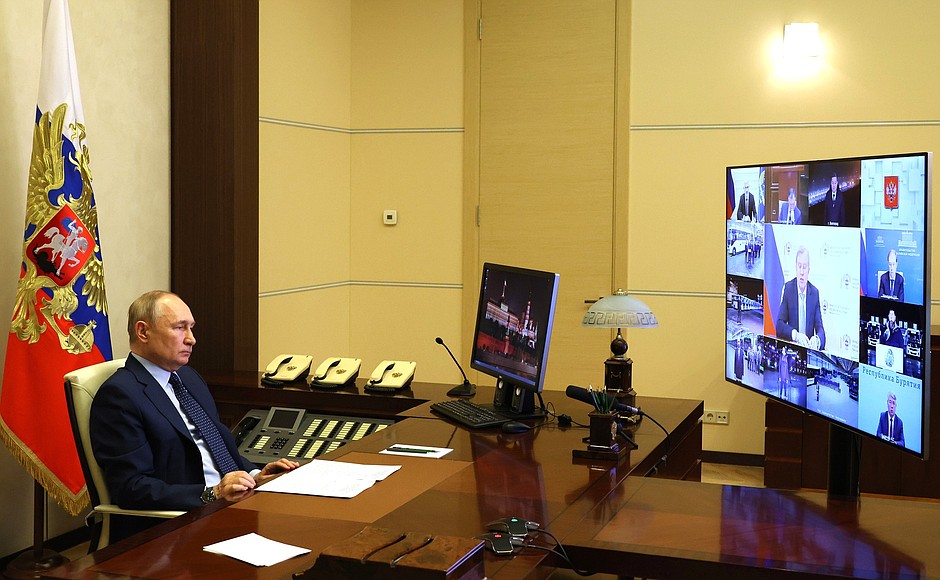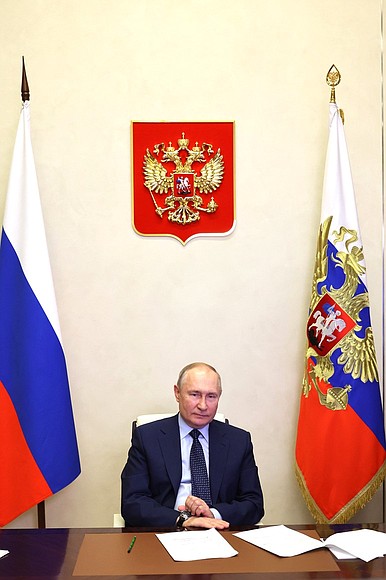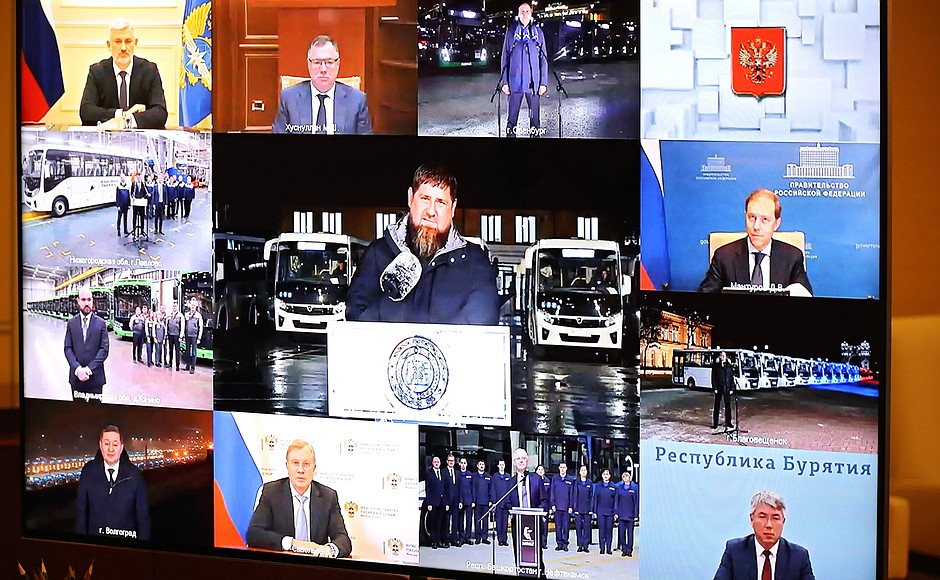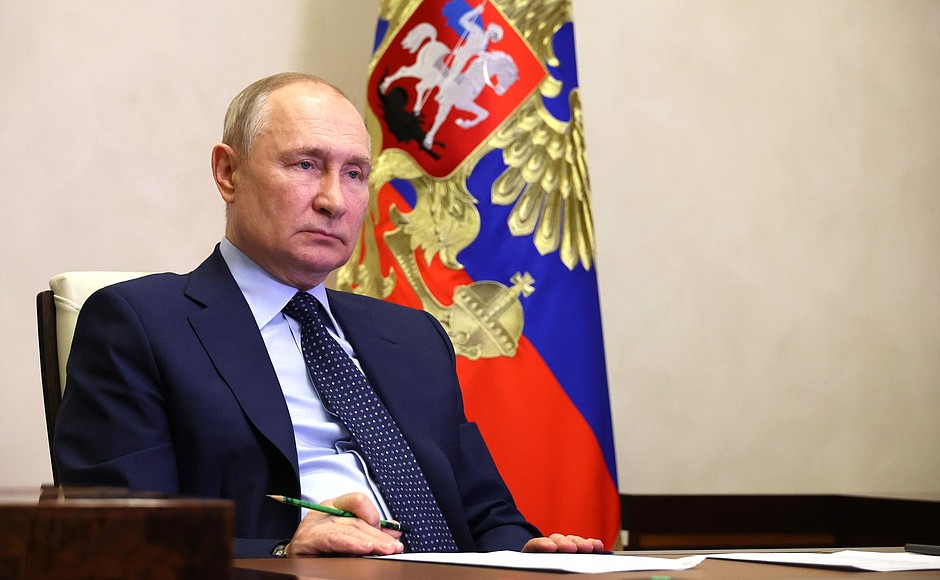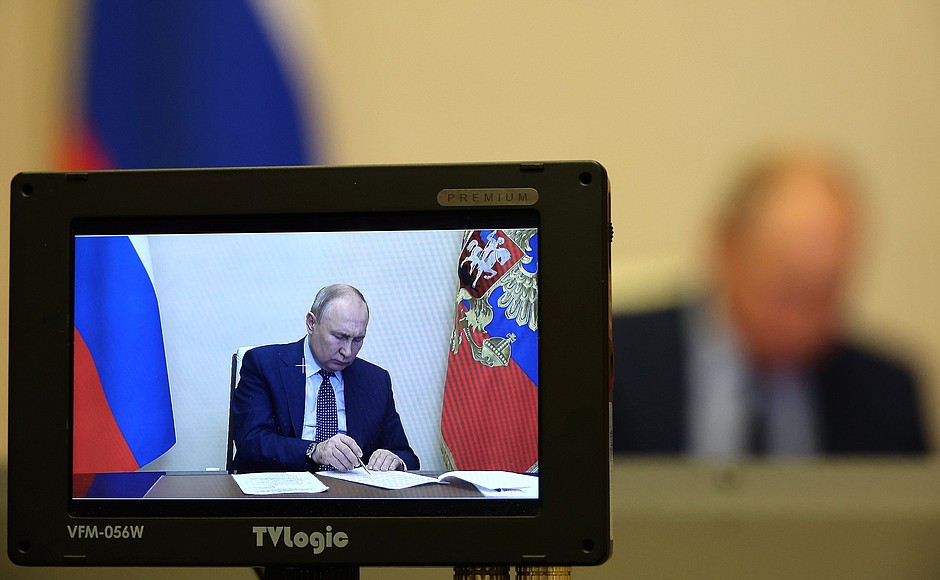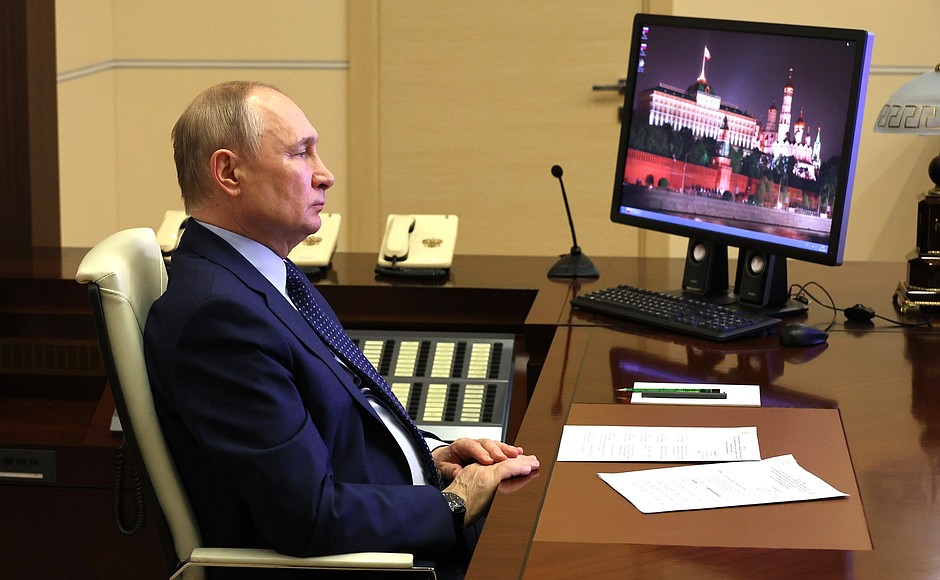The event was attended by the heads of five federal constituent entities, specifically the Amur, Volgograd, Nizhny Novgorod and Orenburg regions, as well as the Chechen Republic. New vehicles were also sent to the Republic of Bashkortostan, to the Kaluga, Murmansk, Novosibirsk and Rostov regions, as well as the Perm and Stavropol territories. In total, twelve federal constituent entities received almost 570 buses, trolleybuses and electric buses.
* * *
President of Russia Vladimir Putin: Good afternoon, colleagues,
Today we mark Transport Workers Day. Congratulations to sector veterans and all current workers of Russia’s transportation industry on your professional day.
Thanks to your professionalism and dedication, air, overland and all-water transport service functions stably, and the entire transport system in our vast country is operating steadily, including shipping in the north. Thank you for your very hard work.
The quality of life, growth in industry, tourism and commerce, and the strengthening of the national economy largely depend on the reliable operation of the transport system. This is why it is important to build its capacity and make it more efficient and up-to-date.
We are facing numerous challenges in this area. Large-scale projects involving the construction and modernisation of transport infrastructure are to be implemented. We need to further develop new and convenient routes for all modes of transport and introduce advanced digital services and new apps for passengers and businesses.
Of course, transport services must ensure speed and comfort, especially public transport, which is becoming increasingly popular. People are choosing this alternative as a faster and more economical way to get around. In our country, buses, trolleybuses and trams alone carry more than 10 billion people annually. Clearly, it is necessary to comprehensively upgrade the transport system, not only in major metropolitan areas but also in medium and small urban and rural areas.
Our key priorities are the annual, smooth upgrading of vehicles, and thus, a reduction in the average age of the public transportation fleet throughout the country.
New mechanisms for financial support – special treasury loans – are being used to help the regions resolve this problem. The allocations for this purpose total about 50 billion rubles. These funds will be spent to supply the regions with about 3,000 buses this year.
In addition, we are making broad use of preferential leasing mechanisms, allocating money from the National Welfare Fund, and subsidising programmes on developing battery electric transport for municipalities.
Overall, these mechanisms will make it possible to supply the regions with about 5,500 buses, including electric buses and trams by the end of the year. The regions are already receiving some of these vehicles. They should receive another 3,000 buses through special treasury loans in the first quarter of 2024. This means that the use of public transit will be more convenient and safer for many people in Russia.
I would like to emphasise that we must continue modernising the public transportation fleet. Specific instructions on this issue have already been given, in part, following the State Council Presidium meeting last August. I am counting on the unconditional fulfilment of these instructions, and I expect the Government to submit proposals on building up the rate at which the public transportation fleets in the regions are being upgraded.
Importantly, these measures also provide for the development of Russian equipment manufacturers including their many subcontractors and should help create new domestic technological platforms.
I would like to thank the specialists in this area for their productive work and tangible contribution to this effort.
In conclusion, I would like to once again congratulate you on your professional holiday and wish you new successes.
Now I would like to give the floor to the Transport Minister, Mr Savelyev.
<…>
